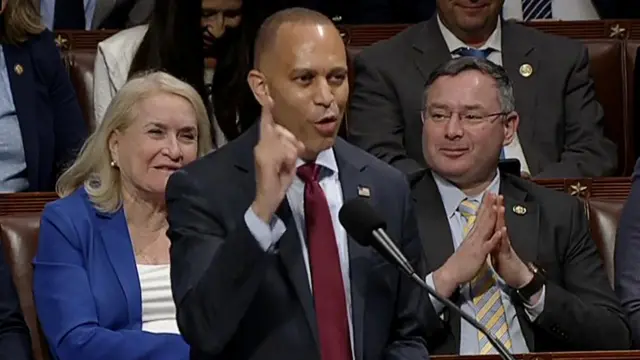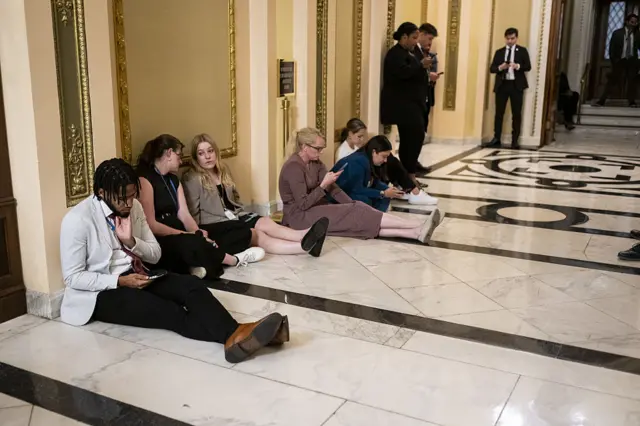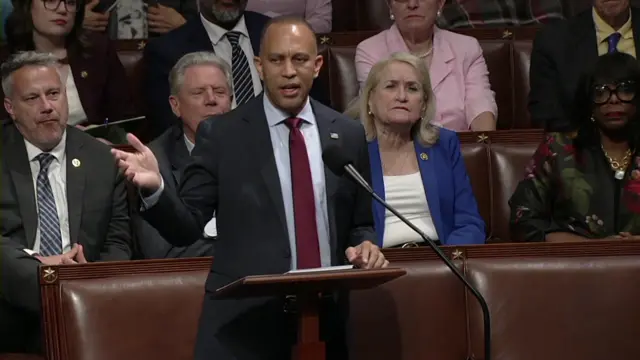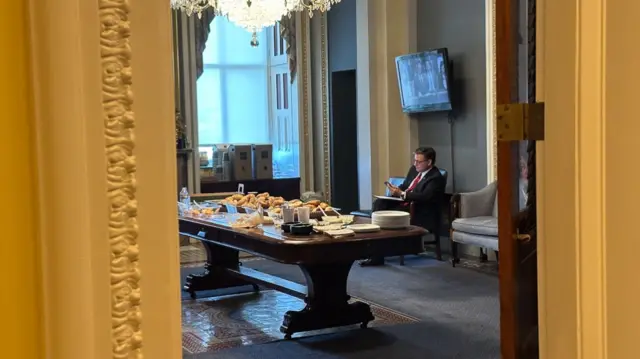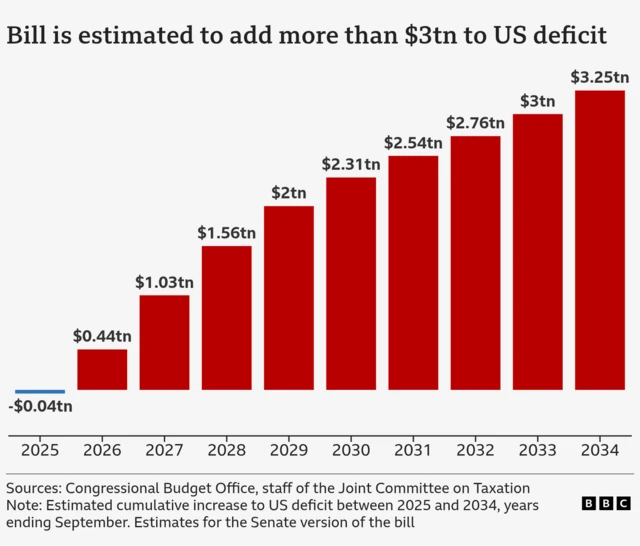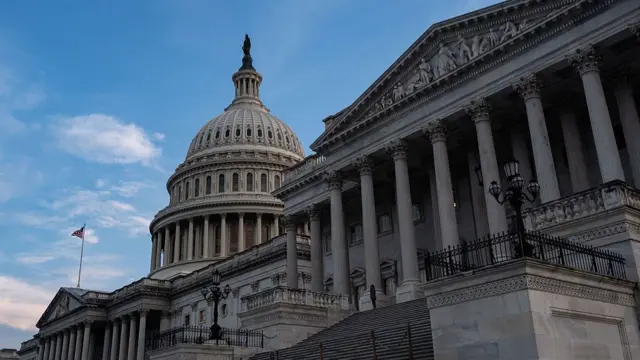Democrats rise to their feet, rallying around Jeffriespublished at 18:21 BST 3 July
 Brandon Drenon
Brandon Drenon
Reporting from the US Capitol
Democrats are now standing around Jeffries, cheering him on as he comes within minutes of breaking the record.
Their energy levels are rising, gestures growing more animated, marked by constant chants of "take your time, your sweet time" and loud, extended bursts of applause after key lines.
There must be a sense that the end is near. Even Republican lawmakers are trickling back onto the House floor.

